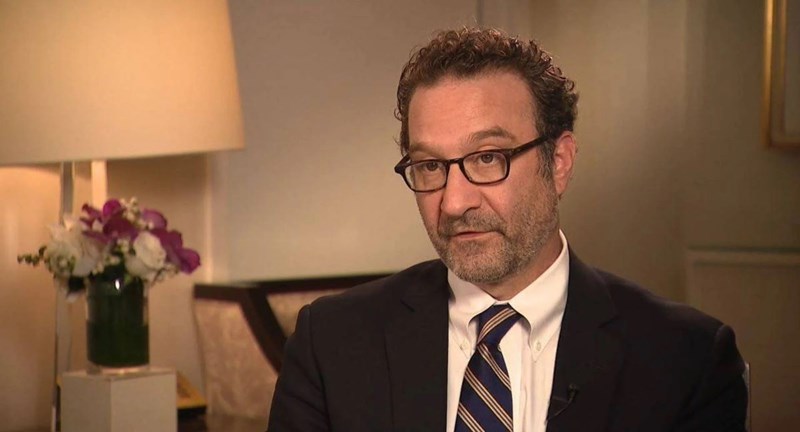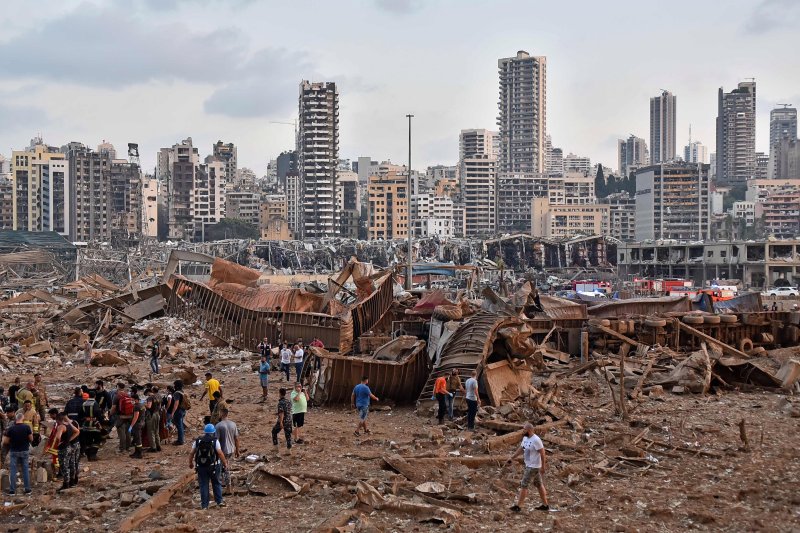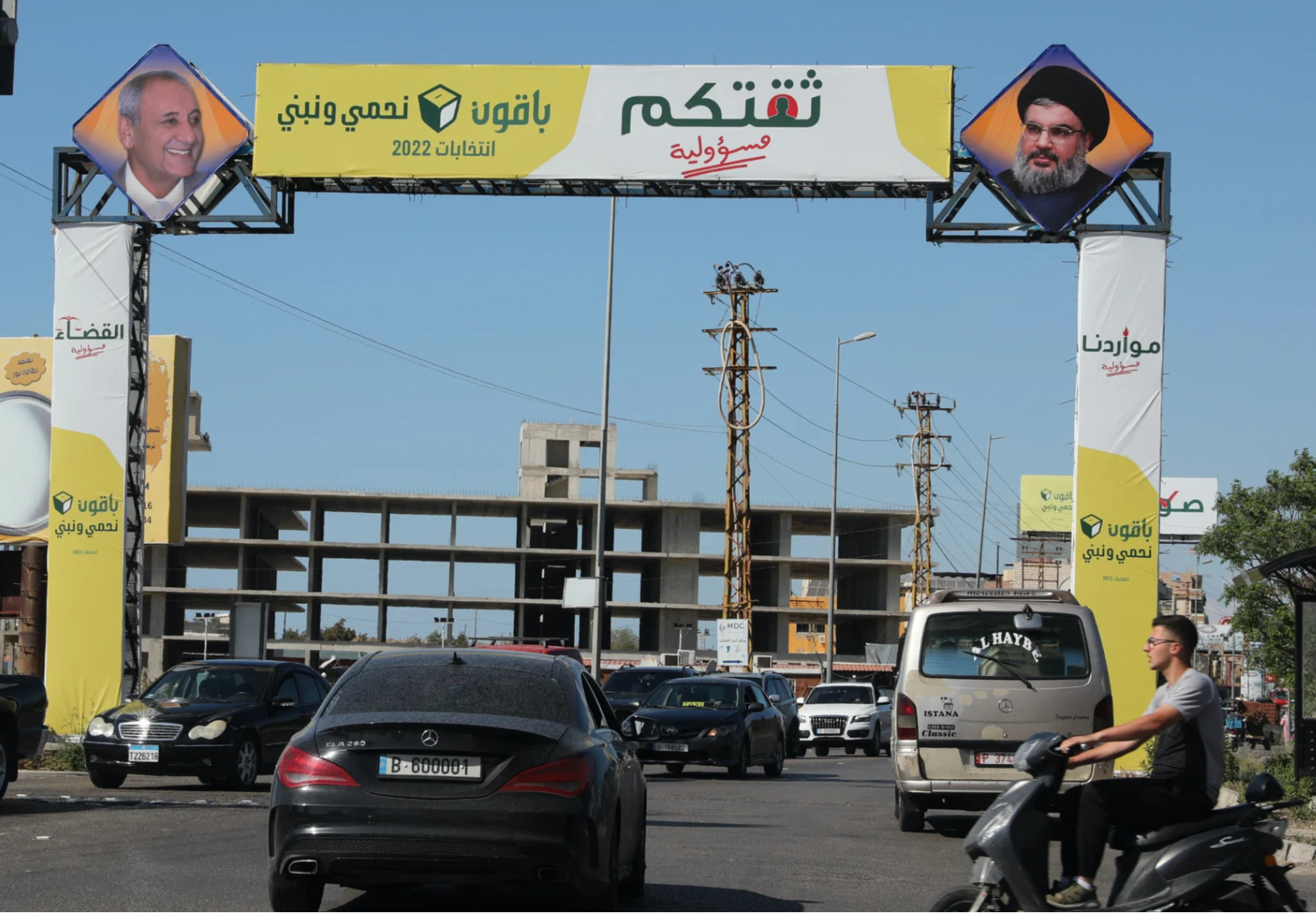
by news.middleeast-24.com -- Former US Assistant Secretary of State for Near Eastern Affairs David Schenker talks about the US role in accelerating the financial collapse in Lebanon, and Washington’s vision for the upcoming parliamentary elections. Former US Assistant Secretary of State for Near Eastern Affairs David Schenker Ahead of the parliamentary elections in Lebanon, the former US Assistant Secretary of State for Near Eastern Affairs, David Schenker, made dangerous statements about the American role played by the administration of former President Donald Trump in the country in order to accelerate the financial collapse, and about the administration’s exploitation of the “October 17” movement in order to distort The image of Hezbollah and its weakening with its allies.
During a symposium conducted by the Washington Institute under the title “Hezbollah and Shiites Dynamics and Lebanon’s Elections: Challenges, Opportunities, and Political Implications,” Schenker stated that during the Trump era, his country “imposed sanctions on Hezbollah’s financial institutions and on the Jammal Bank, and proceeded to synchronize this immediately after the establishment of the Agency.” Moody’s credit rating downgrades Lebanon’s credit rating. He added, “We were the ones behind the decision to lower Lebanon’s credit rating, and the Trump administration was keen to synchronize the announcement of the downgrade with its imposition of sanctions on the Beauty Bank, which was imposed at that time the next day immediately.” He pointed out, in this context, that “Washington not only did this to this extent, but also imposed sanctions on Hezbollah’s ally, the head of the Free Patriotic Movement, Gebran Bassil.”
by AFP — Lebanese activists on Friday rolled out mock banknotes featuring paintings of a gutted central bank or the Beirut port …

By Tamara Qiblawi, CNN -- Beirut, Lebanon (CNN)The coastal highway that connects Lebanon's northern-most tip to the country's south is peppered with gaping potholes. The stench of landfill hangs in the air as emaciated men rummage through dumpsters, their faces smudged with dirt. Towering above the wreckage wrought by nearly three years of economic collapse are endless rows of election billboards. Some show relatively unfamiliar candidates fielded by new political groups. But most display the looming faces of politicians from decades-old sectarian parties. Nearly all of the campaign slogans promise "change." The irony is not lost on anyone in a country where negligence by the political elite nearly destroyed the capital in the biggest non-nuclear explosion in history.
Lebanon's soul has been eviscerated by its financial crisis. Not even the children want to play On Sunday, Lebanese citizens will vote for a new parliament for the first time since an October 2019 uprising demanded the fall of a century-old political order. The path to political change has been rife with challenges, and whether this year's election will deliver a new political makeup is far from certain. But this is a moment of reckoning for Lebanon's political elite. The establishment they represent is a microcosm of the region's decades-old fault lines, pitting groups backed by the archrivals Iran and Saudi Arabia against each other. Change in Beirut's political order could mark a first step in extricating the country from its hodgepodge of proxy conflicts, and produce a ripple effect in a region where protest movements have so far failed to effect political change.

By Heba Nasser in Sour, Lebanon -- middleeasteye.net -- The electoral aesthetic across south Lebanon is a glaring display of the deep-rooted dominance of Hezbollah and the Amal Movement. All along highways and side roads, the serene faces of Shia leaders and their candidates look on from posters as people drive deeper southward. “Your trust is our responsibility,” proclaims one slogan perched high at the entrance of Abbasiyeh, a town a handful of kilometres away from Lebanon's southern coast. There’s no question that the Shia heavyweight parties are predicted to win the majority of votes in south Lebanon on Sunday. But a lot has changed in the four years since Lebanon’s last elections: a popular uprising and catastrophic economic collapse, to name a few. That upheaval has led to rumblings of dissatisfaction across Hezbollah and Amal’s stronghold, and the parties themselves have taken notice.
Despite their assured electoral hold, for weeks now the parties have been contacting southern constituents - even those most loyal to them - to ensure that they will be voting on Sunday, in a push never seen previously. But like all parties that make up the oligarchy that has run Lebanon into the ground, they are increasingly associated with the country’s breakdown, and many in the south have started expressing disenchantment with the factions they have traditionally supported and repeatedly voted for. How that dissatisfaction is expressed is another matter. Lebanese voters have a habit of calling for change only to vote for their traditional parties when at the polling booth. Yet many southerners told Middle East Eye that faced with today’s corruption, stasis, and economic meltdown, they plan to boycott or cast blank ballots.
Khazen History


Historical Feature:
Churches and Monasteries of the Khazen family

St. Anthony of Padua Church in Ballouneh
Mar Abda Church in Bakaatit Kanaan
Saint Michael Church in Bkaatouta
Saint Therese Church in Qolayaat
Saint Simeon Stylites (مار سمعان العامودي) Church In Ajaltoun
Virgin Mary Church (سيدة المعونات) in Sheilé
Assumption of Mary Church in Ballouneh
1 - The sword of the Maronite Prince
2 - LES KHAZEN CONSULS DE FRANCE
3 - LES MARONITES & LES KHAZEN
4 - LES MAAN & LES KHAZEN
5 - ORIGINE DE LA FAMILLE
Population Movements to Keserwan - The Khazens and The Maans
ما جاء عن الثورة في المقاطعة الكسروانية
ثورة أهالي كسروان على المشايخ الخوازنة وأسبابها
Origins of the "Prince of Maronite" Title
Growing diversity: the Khazin sheiks and the clergy in the first decades of the 18th century
Historical Members:
Barbar Beik El Khazen [English]
Patriach Toubia Kaiss El Khazen(Biography & Life Part1 Part2) (Arabic)
Patriach Youssef Dargham El Khazen (Cont'd)
Cheikh Bishara Jafal El Khazen
Patriarch Youssef Raji El Khazen
The Martyrs Cheikh Philippe & Cheikh Farid El Khazen
Cheikh Nawfal El Khazen (Consul De France)
Cheikh Hossun El Khazen (Consul De France)
Cheikh Abou-Nawfal El Khazen (Consul De France)
Cheikh Francis Abee Nader & his son Yousef
Cheikh Abou-Kanso El Khazen (Consul De France)
Cheikh Abou Nader El Khazen
Cheikh Chafic El Khazen
Cheikh Keserwan El Khazen
Cheikh Serhal El Khazen [English]
Cheikh Rafiq El Khazen [English]
Cheikh Hanna El Khazen
Cheikha Arzi El Khazen
Marie El Khazen